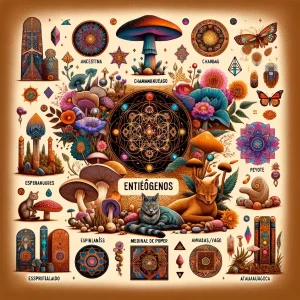Introduction to LSD and its Discovery
LSD, or lysergic acid diethylamide, is one of the most studied and culturally significant psychedelic substances in the world. Discovered in 1938 by Swiss chemist Albert Hofmann, LSD was initially investigated for its potential therapeutic applications before becoming a symbol of the counterculture of the 1960s. This powerful compound is known to cause profound alterations in perception, thinking, and emotions, which has captured the imagination of generations.
Physiological and Psychological Effects of LSD
When LSD is consumed, the compound interacts with serotonin receptors in the brain, particularly in areas involved in mood control, sensory perception, and cognitive thinking. The effects can vary widely depending on the dose, environment, and emotional state of the user, including everything from intense visual disturbances and changes in the perception of time to experiences of emotional ecstasy and personal epiphanies.
Risks Associated with LSD Use
Despite its promising applications, LSD is not without its risks. Negative experiences, also known as “bad trips,” can include intense anxiety, paranoia, and disorientation. In addition, although LSD is not considered addictive in the traditional sense, its use can lead to risky behaviors and poor decisions under influence. The importance of a safe and controlled environment for their consumption cannot be underestimated.
Scientific Research and Therapeutic Use of LSD
In the 1950s, LSD was extensively studied for its potential to treat a variety of psychological disorders, including depression, anxiety, and addictions. However, research stalled with LSD being classified as a Schedule I drug in many countries, which meant severe restrictions on its study. Recently, science has renewed its interest in LSD, exploring its usefulness in the treatment of PTSD, anxiety related to terminal illnesses, and other psychological challenges, under rigorous research protocols and controlled conditions.
Cultural Impact and Legacy of LSD
LSD's impact on culture has been immense and multifaceted. In the 1960s, it was adopted by the counterculture as a tool for expanding consciousness and as a symbol of rebellion against social and political norms. Artists, musicians, and writers have cited LSD as a significant influence on their work, seeking to explore and express new psychedelic perspectives.
Ancestrina: Our Approach to LSD
At Ancestrina, we recognize both the potential and risks of LSD. Our mission is to provide balanced, evidence-based information that empowers people to make informed decisions about their use. We advocate for respect for the law and the ethical use of all substances, including LSD, especially in contexts that promote well-being and personal healing.
Responsible Exploration with Ancestrina
If you want to learn more about LSD and its impact both personally and culturally, we invite you to explore further with the reliable and educational resources we offer. At Ancestrina, we are committed to advancing knowledge and supporting our customers on their journey of conscious and responsible exploration.
Explore more about your spiritual and ancestral well-being with Ancestrina. Visit our store to discover authentic products that connect you with ancestral traditions, or join our community to learn more and share your experiences. Your journey towards holistic well-being starts here! Click here to learn more and begin your journey with us..










